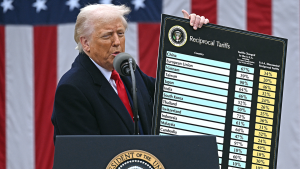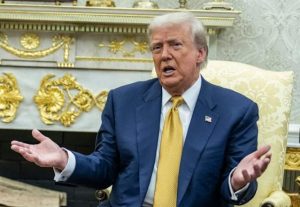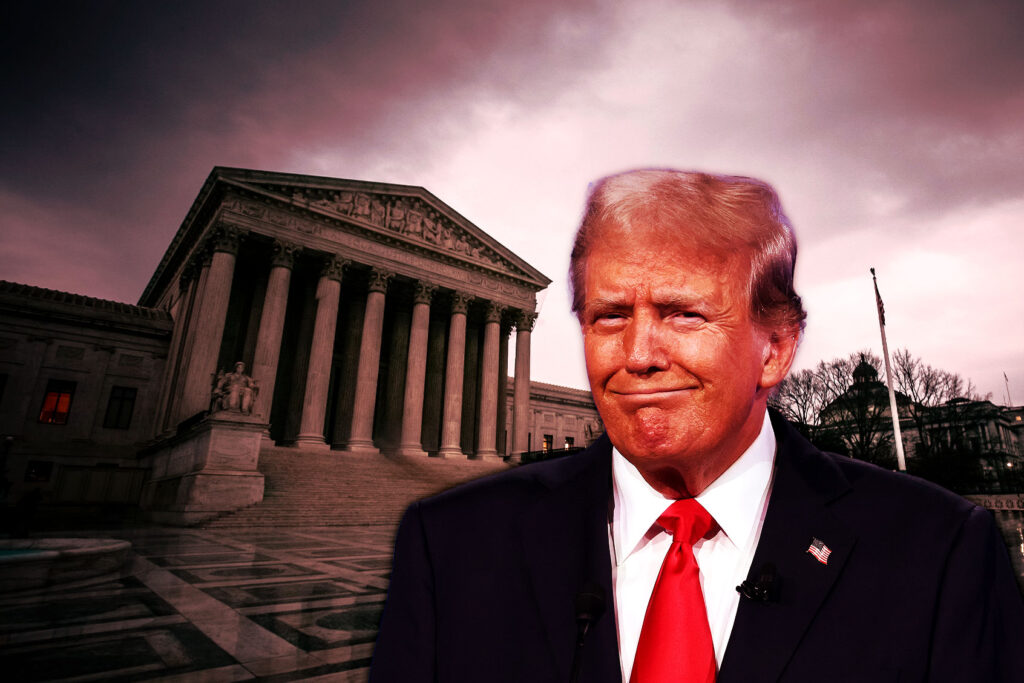Washington D.C. – A significant legal setback has been delivered to US President Donald Trump’s trade policy after a US appeals court ruled that most of his tariffs were unlawful. The decision of US Court on Trump Tariff, however, does not immediately halt the duties, which will remain in effect until October 14, allowing the Trump administration time to appeal before the Supreme Court. The ruling has amplified the debate on presidential authority over tariffs and taxation.
The Court’s Decision


In its judgment, the US Court of Appeals for the Federal Circuit in Washington DC ruled that Trump had overstepped his authority when he imposed tariffs under the International Emergency Economic Powers Act (IEEPA). The court concluded that while the statute grants the president significant emergency powers, it does not explicitly include the authority to impose tariffs or duties.
“The statute bestows significant authority on the President to undertake actions in response to a declared national emergency, but none of these explicitly include tariffs or taxation,” the ruling stated. This clarification has placed US Court On Trump Tariff rulings at the center of the legal debate on executive overreach.
Tariffs Affected and Unaffected

The ruling applies specifically to Trump’s “reciprocal” tariffs, introduced in April during his trade war, and another set of tariffs announced in February targeting China, Canada, and Mexico. However, other tariffs—such as those imposed on steel and aluminum under different statutes—remain unaffected by the court’s decision.
This distinction highlights the scope of US Court On Trump Tariff implications, showing that not all trade measures by Trump are invalidated, but his use of emergency powers for tariff purposes faces serious legal hurdles.
Trump’s Reaction


Trump responded sharply to the ruling, branding the appeals court “partisan” and its decision “incorrect.” In his first reaction, he emphasized that the tariffs remain in effect and expressed confidence that the Supreme Court would “help” him keep them intact.
The former president doubled down on his defense of tariffs, calling them “the best tool” to promote Made in America products. For Trump, the narrative is not only about legality but also about economic nationalism. The controversy surrounding US Court On Trump Tariff decisions has thus become a political as well as legal battle.
Legal Foundation Under Scrutiny
Trump had invoked the IEEPA, a 1977 law traditionally used to impose sanctions or freeze assets during national emergencies. By applying it to tariffs, Trump became the first US president to stretch its scope in this manner.
The appeals court, however, noted that Congress likely did not intend to give presidents unlimited authority to impose tariffs when it enacted IEEPA. “It seems unlikely that Congress intended, in enacting IEEPA, to depart from its past practice and grant the President unlimited authority to impose tariffs,” the ruling explained.
This finding underscores the constitutional concerns that have fueled the US Court On Trump Tariff lawsuits, namely that Congress—not the president—holds the power to impose tariffs and taxes.
Multiple Legal Challenges
The ruling is one among several legal challenges piling up against Trump’s tariff policies. At least eight lawsuits have been filed, including one by five small businesses and another by 12 Democratic-led states. Both cases argued that IEEPA does not authorize tariffs and that Trump had exceeded his legal authority.
Earlier, the US Court of International Trade had also ruled that Trump went beyond his powers by imposing such tariffs, a decision supported even by one judge appointed by Trump himself. Another Washington-based court has reached a similar conclusion, further reinforcing the significance of US Court On Trump Tariff findings.
Broader Impact on Trade Policy


The court’s decision has ramifications beyond Trump’s administration. It highlights the limits of presidential power in shaping trade policy without explicit congressional approval. If the Supreme Court upholds the ruling, it could restrict future presidents from unilaterally imposing tariffs under emergency powers.
Also Read: Shocking Minneapolis Shooter Message; Attack That Claimed 2 Lives
The debate surrounding US Court On Trump Tariff is not only about Trump but also about defining the boundaries of executive authority in US governance. It has raised critical questions about separation of powers and the role of Congress in trade regulation.
Reactions From Agencies
As of now, the treasury department, the office of the US trade representative, and the commerce department have not commented on the appeals court’s ruling. The silence underscores the complexity of the matter and the likelihood that the administration will pursue an appeal to the Supreme Court.
Meanwhile, businesses and states involved in the lawsuits have welcomed the outcome, seeing it as a necessary correction to presidential overreach. For them, US Court On Trump Tariff outcomes could mean relief from duties that raised costs and disrupted supply chains.
Trump’s Nationalist Pitch
Despite the legal defeats, Trump continues to frame tariffs as an essential instrument for American prosperity. He has insisted that tariffs are a matter of national strength, portraying them as a win-or-lose issue for the country.
By tying tariffs to patriotism, Trump aims to maintain support for his economic policies among his political base. His insistence, despite US Court On Trump Tariff rulings, shows that tariffs remain a core element of his identity as a leader who prioritizes American-made goods.
Final Statement
The appeals court decision marking most of Trump’s tariffs illegal is a landmark in the ongoing debate over presidential authority. While tariffs remain in place until October 14, the administration has a narrow window to appeal before the Supreme Court.
As the legal battle intensifies, US Court On Trump Tariff cases are poised to shape not only the legacy of Trump’s trade policies but also the future scope of presidential powers in the United States. The outcome will resonate far beyond the immediate economic impact, defining how far presidents can go in exercising emergency powers in trade policy.

